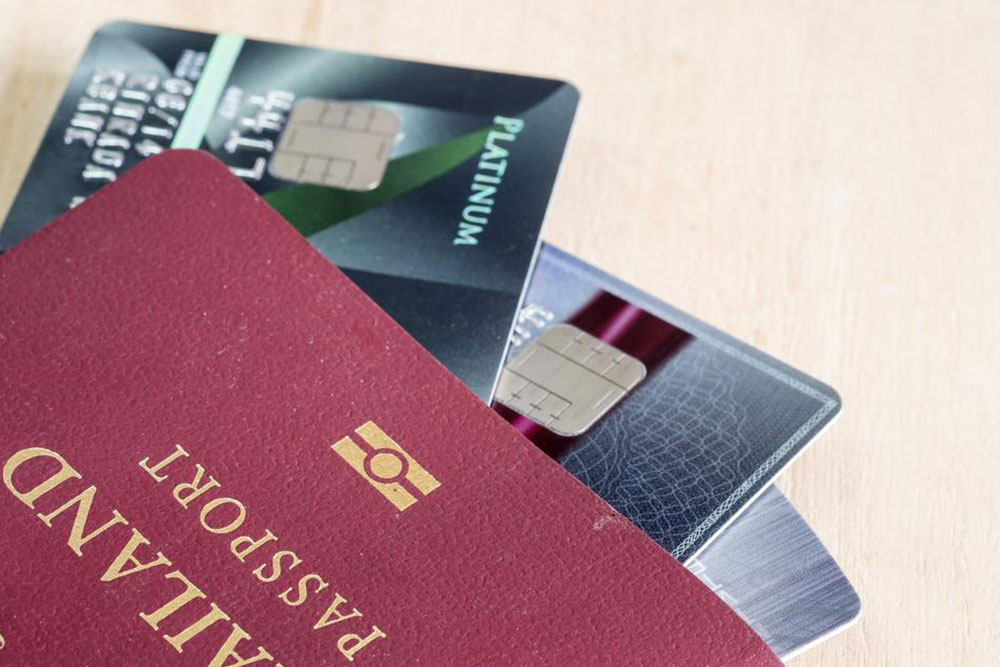Ultimate Guide to Money Transfer Methods: Everything You Need to Know
This comprehensive guide explores various money transfer methods, from traditional bank transfers and cash to innovative digital solutions like PayPal and P2P platforms. It highlights their benefits, costs, and ideal use cases, helping individuals and businesses choose the safest, fastest, and most cost-effective options for international and domestic transactions. Whether for large investments or small remittances, understanding these diverse options ensures secure and efficient fund transfers for all needs.

Comprehensive Overview of Modern and Traditional Money Transfer Techniques
Sending money across distances has become an integral part of daily life, whether for personal needs, business transactions, or investment purposes. With an array of options available, understanding the different methods of money transfer can help you choose the most appropriate, secure, and cost-effective solution tailored to your specific requirements. This extensive guide explores various techniques, from traditional banking methods to innovative digital solutions, providing valuable insights into each process, their benefits, and considerations for users worldwide.
Currency Exchange Specialists
Currency exchange brokers play a vital role in facilitating large-value transactions, particularly in scenarios such as international property acquisitions, large-scale business deals, or specialty service payments. Unlike standard banks, these specialists focus exclusively on currency exchange and transfer services, often offering tailored solutions to meet individual or corporate needs. To utilize their services, clients generally need to open an account and fund it via savings, credit, or other financing options. These specialists provide customized exchange rates and transfer solutions, ensuring that clients receive competitive prices and secure dealings. Their expertise in currency markets also allows them to advise on the best times and methods for transferring significant amounts, minimizing costs and risks involved.
Money Transfer Operators (MTOs)
Companies such as Western Union, MoneyGram, Chequepoint, and Coinstar are world-renowned for providing quick and convenient international money transfer services. These firms do not require recipients to have bank accounts, making them accessible to people in regions with limited banking infrastructure. Users typically visit physical outlets or access online platforms and mobile applications to send funds across borders. MTOs excel at offering rapid transfer services, often delivering cash to recipients within minutes to hours, depending on the destination and payment method. Their user-friendly interfaces and widespread agent networks make them a popular choice for individuals needing immediate financial assistance or remittances.
Banks and Credit Unions
Traditional banking institutions have long been trusted conduits for money transfers. They offer various services, including wire transfers, ACH payments, and online banking transfers. To utilize these services, customers must first register and link their bank accounts. The recipient generally needs to possess their own bank account, particularly for domestic transfers. Although bank transfers might take longer compared to digital options, they tend to be more secure and reliable. Banks also often provide additional financial services, such as personal loans, mortgages, savings accounts, and investment products, making them a comprehensive choice for managing one’s finances. For international transfers, banks require detailed recipient information, including full name, address, bank account number, and SWIFT/BIC codes, which facilitate global transactions across different currencies and banking systems.
Digital Money Transfers
Online money transfer methods have gained popularity due to their convenience, speed, and relatively low fees. These services often require users to have a registered account linked to their bank account or credit card. Sending money online is straightforward: you log into your digital wallet or app, enter the recipient’s details, and confirm the transaction. Most digital transfer platforms also support international transactions, often with real-time currency conversion and tracking features. Their ease of use and integration with mobile devices make them ideal for casual remittances, small business payments, and recurring transactions. The recipient may need online access or a compatible digital wallet to receive funds, depending on the platform used.
While many digital transfer solutions require internet access and an online account, some methods have relaxed requirements, enabling transfers with minimal setup. These options are particularly useful in regions with emerging digital banking infrastructure.
Prepaid Debit Cards
Prepaid debit cards serve as a flexible alternative for managing foreign currencies, especially during travel or online shopping. These cards can be topped up with a specified amount of foreign currency at retail outlets or online. They function similarly to regular debit cards and can be used for ATM withdrawals, point-of-sale purchases, or online payments. Because they are preloaded, they help control spending and reduce exposure to currency exchange risk. Prepaid cards are widely available, offering a convenient way to carry multiple currencies without the need for a bank account in the destination country.
Peer-to-Peer (P2P) Transfers
Peer-to-peer transfer platforms enable individuals to exchange money directly, often at exchange rates they set themselves, reducing costs associated with bank margins and fees. P2P services leverage online platforms or mobile apps, facilitating swift and cost-efficient transfers between users. These services are especially popular among expatriates and migrant workers who send remittances home, as well as among small businesses and individuals seeking to avoid traditional banking charges. Users can often negotiate exchange rates, and some platforms support multi-currency transactions. Security is maintained through encryption and verification protocols, ensuring safe transfers between trusted parties.
Bank Accounts and Transfers
Standard bank-to-bank transfers within the same banking institution are usually free or incur minimal charges. For cross-bank or international transfers, users need to provide detailed account information, including account and routing numbers. International wire transfers involve the sender’s bank communicating with the recipient’s bank via SWIFT or IBAN networks. These transfers are reliable for large or urgent transactions but may involve higher fees and longer processing times—especially for international deals. It’s essential to compare fees, exchange rates, and processing times before initiating these transfers to optimize costs and efficiency.
Electronic Funds Transfers (EFT) and Automated Clearing House (ACH)
EFT or ACH payments are digital transfer methods suited for recurring or bill payments. They typically require the recipient’s bank details and can involve local or international transfer systems. International EFT transfers may utilize SWIFT or IBAN, while domestic payments often process faster with less fee. These transfers are cost-effective and widely used for payroll, utility payments, and subscriptions, providing a seamless way to manage ongoing financial commitments online.
PayPal and Similar Digital Wallets
PayPal remains a popular choice for sending and receiving money electronically, offering low to no fees for domestic transactions and competitive rates for international payments. Users link their bank accounts or credit cards to their PayPal accounts, facilitating quick transfers. PayPal supports business transactions, e-commerce, and peer-to-peer transfers globally. Additional services such as invoicing, buyer and seller protection, and currency conversion enhance its versatility. The platform’s secure encryption ensures privacy and safety, making it a favoured tool for freelancers, small businesses, and personal remittances.
Western Union and MoneyGram
As two of the most established money transfer services, Western Union and MoneyGram offer extensive global networks, allowing users to send money from and to nearly every country. These companies excel at providing instant cash pickups, making them ideal for emergency transfers or cash-based transactions. Fees vary depending on transfer speed, amount, and geographic destination. Currency exchange costs are also factored into international transactions. These services are accessible through physical agents, online platforms, and mobile apps, providing flexibility and wide coverage for users needing fast, reliable remittance options.
Traditional Methods: Cash, Checks, and Money Orders
Despite the rise of digital solutions, cash remains a straightforward and accessible transfer method, especially in person or within the same locality. Withdrawing cash and depositing it into another account is simple but less secure. Checks, whether personal or cashier’s, are still used for domestic and international transactions, although they may be slow due to clearing times and verification processes. Money orders and bank drafts offer traceable, prepaid options suitable for small amounts or cost-sensitive transfers. While less common now, these methods remain relevant in specific contexts or regions with limited digital banking infrastructure.
Email Money Transfers
Initiated electronically, email money transfers utilize email notifications and security questions to authorize fund movement. They are rapid and inexpensive, often used for personal or small business purposes. The recipient usually receives an email with instructions or direct transfer to their linked bank account, making it an efficient alternative to cash or physical checks. These methods are especially popular for domestic transactions and in regions where digital banking is accessible but traditional banking options may be limited.
Wire Transfers: Fast, Secure, and Large-Scale
Wire transfers are designed for large or urgent financial transactions, enabling funds to move directly from one bank account to another often within a few hours. They utilize specialized messaging systems like FedWire or RTGS dedicated to high-value, time-sensitive transactions. Wire transfers involve higher fees and require detailed recipient information to ensure accuracy and compliance. They are favored by corporations, financial institutions, and individuals engaging in cross-border transactions requiring immediacy and security. Always compare costs and confirmation times before selecting a wire transfer method to ensure optimal value and reliability.




